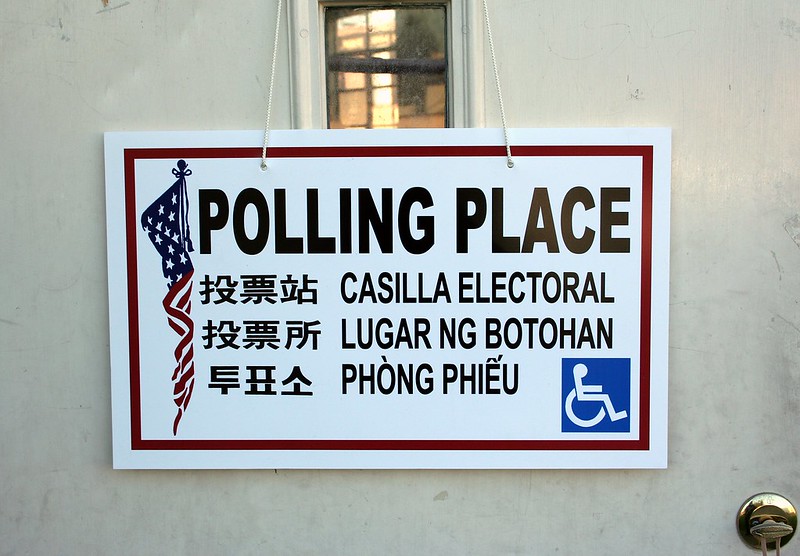
Today, Californians will be facing billions of dollars in state and, in some cases, local tax hikes on the general election ballot. If approved by voters, these measures would make California an even less attractive place to live, invest, and do business.
California is already home to some of the highest tax rates in the country. Its top marginal individual income tax rate of 13.30% is the highest in the nation. Its gas tax rate of 62.47 cents per gallon is also the highest. Its combined state and local sales tax rate of 8.66% is 9th highest. Its corporate tax rate of 8.84% is 8th highest. No wonder the Tax Foundation ranks California 49th best on its State Business Tax Climate Index.
Yet, things may soon get worse.
Proposition 15, which will appear before all California voters, would remove the Proposition 13 property tax limit (a voter approved measure that limits the annual rise in the taxable value of a property, both personal and commercial, at 2% or the rate of inflation, whichever is smaller) for commercial properties. This split-roll concept – where commercial and residential properties do not face the same tax rates, ratios, or assessment schedules – could raise taxes on California employers by as much as $12 billion annually!
Proponents of Proposition 15 claim it would only impact large commercial property owners, but that is not true. In reality, this tax hike would also impact small businesses who rent. As John Kabateck at the National Federation of Independent Business explains, “the majority of small business owners, upwards of 80%, rent their property. That cost is passed on directly from property owners.” Ultimately, this tax hike would be passed onto consumers in the form of higher prices or workers in the form of fewer jobs and lower wages.
Unfortunately for Californians, that is not the only property tax hike that will appear before them. Voters across the Golden State will also be deciding on Proposition 19, which would raise taxes on families by repealing Proposition 58 (a voter approved measure that allows certain properties to be transferred between families without reassessment).
According to the Howard Jarvis Taxpayers Association, Proposition 19 was put on the ballot via a last-minute backroom deal among legislators. The non-partisan California Legislative Analyst’s Office has noted that Proposition 19 could eventually cost California families two billion dollars annually in higher property tax bills.
In some parts of California, voters will also be deciding on local tax hikes. Residents of San Francisco, for example, will be voting on:
Proposition RR, which would generate more hard-earned tax dollars for Caltrain rail services in the form of an additional 0.125 percentage sales tax. If approved, this sales tax, which would remain in place for at least thirty years, would take the San Francisco sales tax rate from 8.5% to 8.625%.
Proposition I, which would raise the real estate transfer tax. If approved, transactions of $10 million to $25 million would face a tax rate of 5.5%, and transactions of $25 million or more would face a tax rate of 6%.
Proposition L, which would impose an additional gross receipts tax of 0.1 to 0.6 percent or a payroll tax of 0.2 to 2.4 percent on businesses whose highest managerial employees have salaries 100x’s greater than the median compensation for employees.
Since March, a number of successful business owners and entrepreneurs have come out against California’s tax climate and incompetent governance. Just last month, Jeffrey Gundlach, a billionaire bond fund manager and founder of DoubleLine Capital LP, tweeted:
“Elon Musk, Joe Rogan and Ben Shapiro, to name just a few, are leaving California to escape incompetent governance. The ‘response’ from Sacramento? Wealth and massive income tax increases on job creators (AKA ‘the wealthy’).”
This is part of a larger trend of people fleeing the Golden State to escape the high taxes and expensive cost of living. According to the Internal Revenue Service’s Migration Data, California saw a net loss of 153,197 residents between 2017 and 2018. In addition to people migrating out of California, there was a net loss of $7,983,739,000 leaving the state.
A rational lawmaker would recognize it is time to lower taxes and figure out other ways to encourage people to stay in California. Instead, Democrats have focused on exporting California’s tax burden. This past August, lawmakers in Sacramento proposed legislation that would impose a 0.4% wealth tax on anyone whose net worth is greater than $30 million that, alarmingly, would apply to former residents for 10 years after they leave the state.
To come up with such an outrageous policy, lawmakers must know that California is driving businesses and people away. But they love to tax and spend, so they are still piling on with MORE tax hikes.
Gov. Gavin Newsom and the Democrat party support Propositions 15 and 19. If approved, these tax hikes will only give taxpayers another reason to leave California.

